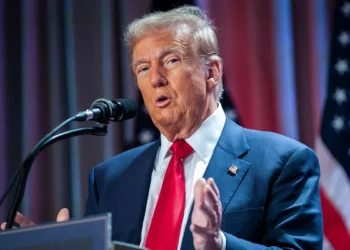The Central Bank of Nigeria (CBN) may eventually devalue the naira in 2020, as experts highlighted several disturbing trends clouding growth prospects in the Nigerian economy.
Speaking during the 2020 Nairametrics Economic Outlook Hangout, which held in Lagos over the weekend, financial experts and analysts disclosed that CBN might devalue the naira as structural imbalances from the revenue standpoint, development in the global oil market and policies from the CBN among others pose a very bleak outlook for the economy.
Budget deficits build up as oil prices remain sticky
Speaking during the event, financial expert, Wale Okunrinboye, Head, Investment Research, Sigma Pensions Limited, stated that while the early budget passage is a good way to start, the big task ahead now lies with meeting the revenue targets in 2020.
[READ MORE: CBN strongly denies establishing a poultry farm to support its monetary policies)]
According to Wale, Oil revenue assumptions appear reasonable with oil price benchmarked at USD57/bbl and output of 2.2mbpd, however, the non-oil projections exhibit some over-optimistic forecasts despite tax increments. Hence, borrowing to N2.18 trillion from external sources and N745 billion domestic borrowings further inflate the fiscal deficit.
Also, Wale disclosed that although Oil price rallied in 2019 due to dipper than expected cuts by the Organization of the Petroleum Exporting Countries (OPEC) and its allied partners, the exit of Russia from the current agreement in halfyear 2020 and the end of Saudi’s inventory replenishment will drive oil price towards the USD55-60bbl/range which is not good for Nigeria.
While commenting on inflation, Wale disclosed that the country’s inflation rate is expected to witness an uptick trend in 2020. According to him, several factors that will trigger inflation in 2020 include VAT increment, excise and stamp duties and fall-out from the ongoing border closures.
“Headline inflation is likely to trend with average of 13.2% (2019e: 14%) are also likely by increments to VAT (from 5% to 7.5), excise and stamp duties and fall-out from the outgoing border closures. Given the dominance of grid power, electricity tariff hikes (average +23%) are also likely to drive upward increments to utilities basket which will push core inflation higher. Increased minimum wage also presents modest prospects for demand pull inflation.”
CBN to devalue naira in 2020
On devaluation, all the panellists stated that there is high tendency of naira devaluation in 2020 as the Central Bank’s benchmarks for Naira devaluation are USD50/bbl oil price and foreign exchange (FX) reserve levels closer to USD30 billion.
[READ ALSO: CBN may announce new recapitalisation plan soon)
According to Wale, “in the absence of any restriction on import demand, FX reserve is expected to drop towards USD33 billion from 2019 year-end levels (USD38.5 billion). Also, large foreign holdings of the CBN bills (USD16 billion) portend sizable risks in the event of unfavourable change in global sentiment.”
Wale also stated that the CBN’s drive to support growth and fix its balance sheet issues implies that it will tolerate low interest rate for local investors for a long time which will weight on T-bill yields.
“Low rates will raise scope for capital raising activity which sits well with ongoing wave of bank and insurance sector recapitalization. But this places downside pressures on the FX rate as local investors shift to USD investments given low returns on risk-free Naira instruments. A situation complicated by the external account deficit.”
Speaking on naira devaluation, Cheta Nwanze, Head of Research, SBM Intelligence, disclosed that the CBN is most likely to devalue naira in 2020. According to Cheta, keeping the exchange rate stable in 2019 came at a cost, with depletion of the reserves which led the CBN Governor to state the triggers for devaluation – reserves at $25 billion – $30 billion and oil prices at $50 – $45.
Speaking further, Cheta said, “OMO bubble is expected to burst and much of the hot money propping up the Naira to take flight. In the absence of positive macroeconomic news, FDIs will keep away while FPIs will only take short term positions and the net FX inflows will oscillate.
“The Federal Government’s revenue position is alarmingly untenable, and with the modest increase in the National Minimum Wage still yet to take effect, the CBN simply cannot continue to defend the Naira at current levels. We expect the government to be forced into the hard choice of devaluing the currency sometime within the first half of 2020.“






















Devaluing of naira at this critical period will definitely impoverish Nigerians coupled with increase of vat and border closure